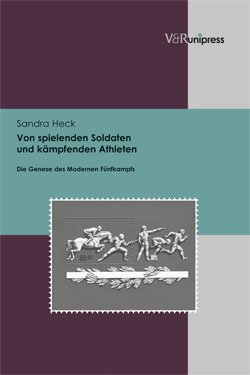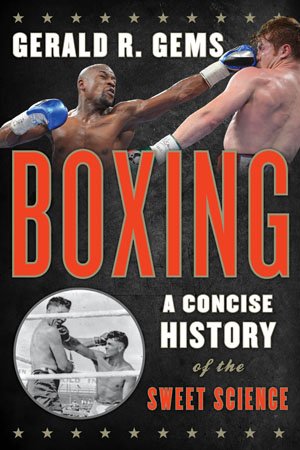Sandra Heck. Von spielenden Soldaten und kämpfenden Athleten: Die Genese des Modernen Fünfkampfs. Göttingen: V&R unipress, 2013.
 |
 100 Jahre olympisch und dennoch weitgehend unerforscht: der Moderne Fünfkampf 100 Jahre olympisch und dennoch weitgehend unerforscht: der Moderne FünfkampfDie nationalistische Stimmung, die in Europa Ende des 19. Jahrhunderts vorherrschte, gab Raum für die Geburt eines Wettkampfs, der sowohl sportlichen als auch militärischen Nutzen versprach: 1912 feierte der Moderne Fünfkampf in Stockholm sein olympisches Debüt und blieb mehr als 100 Jahre olympisch. Die Ursprünge der Sportart, die bis in die zweite Hälfte des 19. Jahrhunderts zurückreichen, sind aber bislang ununtersucht geblieben. Diese Lücke schließt der Band, der sowohl der militärischen als auch der olympischen Genese des Modernen Fünfkampfs gewidmet ist. Die Basis bilden Archivunterlagen, vor allem jene des Internationalen Olympischen Komitees, der Union Internationale de Pentathlon Moderne, des Schwedischen Organisationskomitees der Olympischen Spiele von 1912 und des Schwedischen Militärsportverbands, die die Autorin umfassend auswertet. Auch analysiert sie diverses Pressematerial aus mehreren Ländern, darunter Schweden, Frankreich, England, Deutschland, Österreich und die USA. (vandenhoeck-ruprecht-verlage.com/themen-entdecken/geschichte/geschichte-der-neuzeit/15496/von-spielenden-soldaten-und-kaempfenden-athleten) 100 years Olympic and still largely unexplored: the modern pentathlon |

